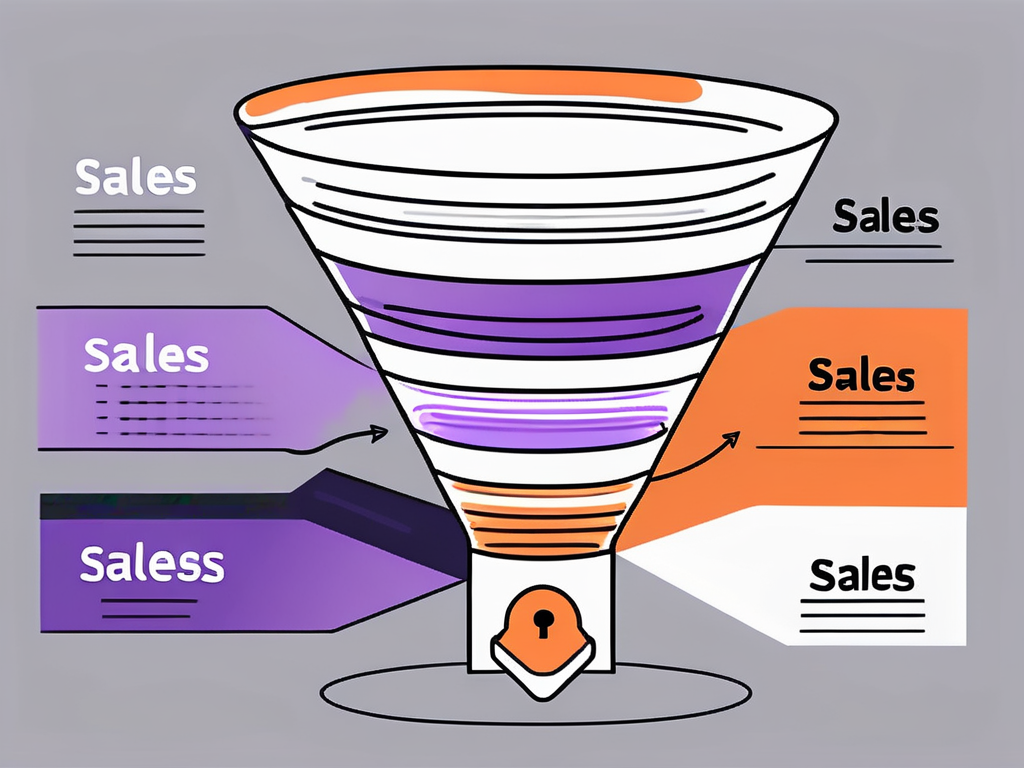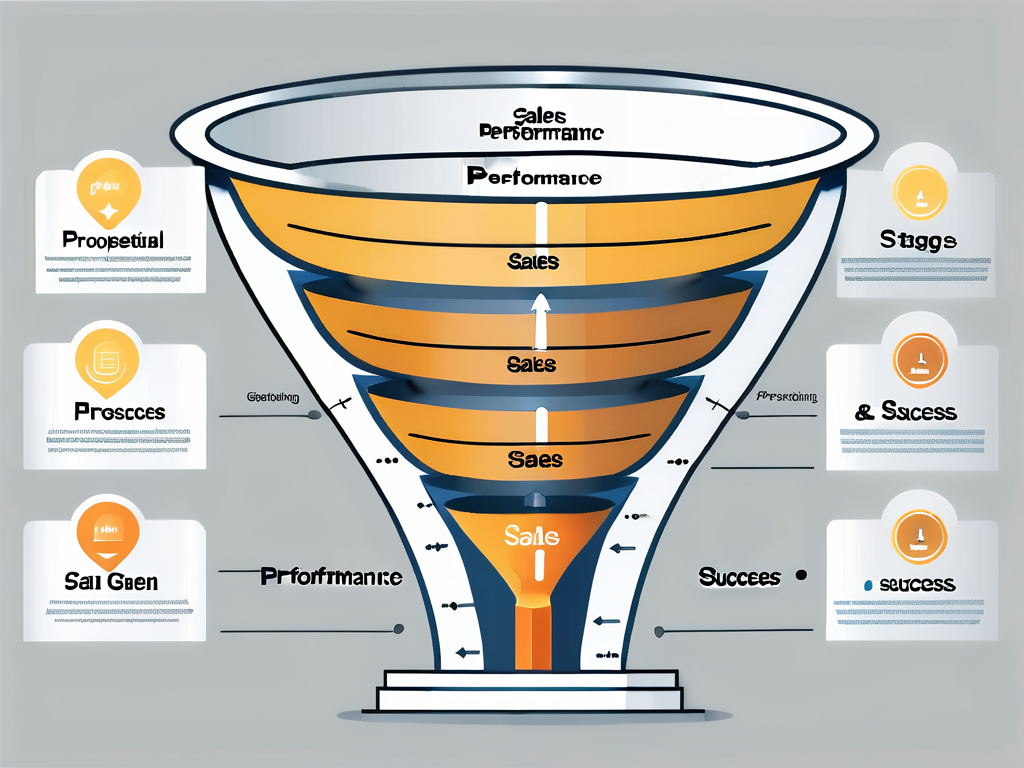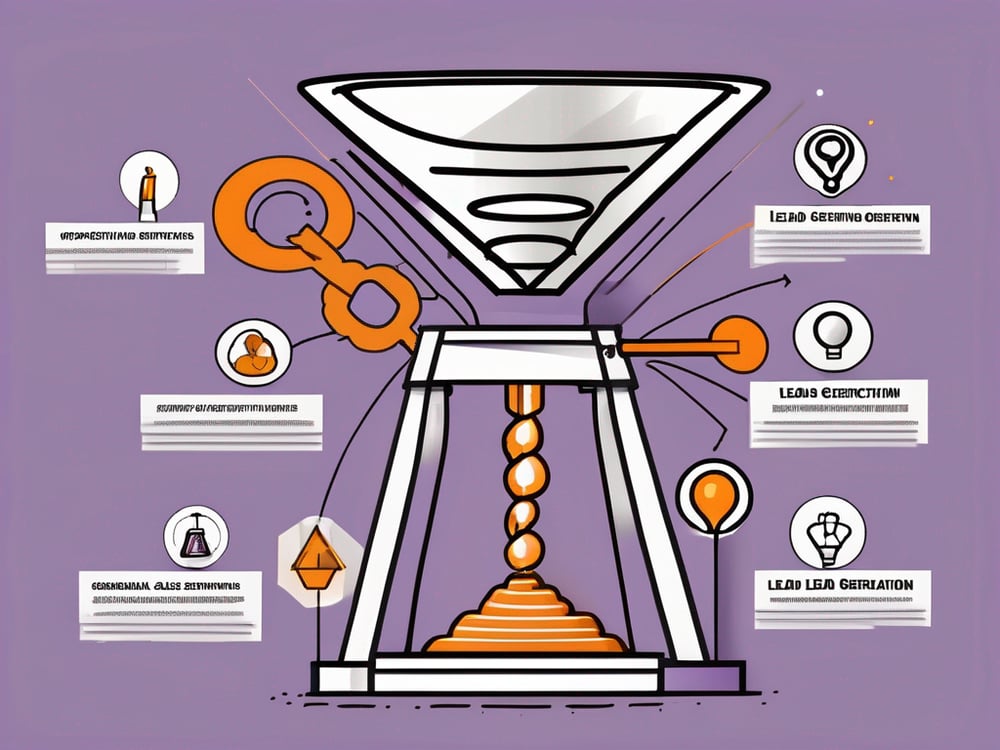In the dynamic world of sales, identifying the most crucial element of the sales process can transform your approach and elevate your success. Whether you’re a seasoned professional or just starting out, understanding this key factor is essential to becoming a sales master.
Join us as we delve into what truly matters most in the sales process and how you can leverage it to achieve outstanding results.
“Success in sales is not measured by how many calls you make, but by how many relationships you build.” – Harvey Mackay
Table of Contents
Toggle3 Most Important Aspects of the Sales Process
While every aspect of the sales process plays a crucial role in achieving success, certain elements stand out as particularly important. Let’s explore:
- Significance of communication
- Customer understanding
- Product knowledge in the sales process

In addition to these key elements, another crucial aspect that significantly impacts the sales process is the ability to adapt and be flexible. In a dynamic market environment, sales professionals often encounter unexpected challenges or changes in customer preferences.
Being adaptable allows salespeople to pivot their strategies, tailor their approach on the fly, and effectively address evolving customer needs.
Sales teams can leverage customer relationship management(CRM)systems, sales automation tools, and data analytics platforms to gain valuable insights, track customer interactions, and make data-driven decisions. By harnessing the power of technology, sales professionals can streamline their workflows, personalize customer experiences, and optimize their sales strategies.
1. Role of Communication in Sales
Effective communication is the foundation of successful sales. It involves active listening, clear articulation, and the ability to build rapport with customers. Communication skills allow sales professionals to understand customer needs, tailor their approach, and build strong relationships.
2. Significance of Customer Understanding
To sell effectively, it is essential to truly understand your customers. This means going beyond surface-level knowledge and digging deep into their:
- pain points
- goals
- and preferences
By understanding your customers, you can position your product or service as the ideal solution to their specific needs.
3. Importance of Product Knowledge
A sales professional must have a deep knowledge of their product or service. By understanding its features, benefits, and competitive advantages, they can confidently address customer inquiries, overcome objections, and showcase the value of what they are selling.
Key Stages in the Sales Process
Navigating the complexities of sales requires a structured approach to ensure consistency and success. Understanding the key stages in the sales process is essential for sales professionals to effectively manage their interactions with potential customers, from initial contact to closing the deal.
By breaking down the sales process into distinct stages, sales teams can systematically address each aspect of the journey, leading to:
- improved performance
- better customer relationships
- higher conversion rates
This section will explore the critical phases that constitute the sales process, providing insights into best practices and strategies for each stage.

- Prospecting: Identifying potential customers and qualifying leads.
- Discovery: Understanding the customer’s needs and pain points.
- Proposal: Presenting a customized solution that addresses the customer’s needs.
- Negotiation: Collaborating with the customer to reach a mutually beneficial agreement.
- Closure: Finalizing the sale and ensuring a smooth handover to the customer.
Each of these key stages in the sales process represents a critical juncture where sales professionals have the opportunity to showcase their expertise and build rapport with potential customers. By honing their skills in each stage, professionals can enhance their overall sales performance and drive greater success in their endeavors.
Why Your Sales Process Needs to Be Structured
A structured sales process brings numerous benefits to both sales professionals and their organizations. It provides a clear roadmap for success and reduces the risks associated with an unstructured approach.
Implementing a structured sales process is like laying a strong foundation for a building. It sets the groundwork for a sales team to work cohesively towards common goals, ensuring that every member is on the same page and working towards the same objectives. This alignment not only boosts productivity but also fosters a sense of unity and camaraderie among team members.
Furthermore, a structured sales process acts as a guiding light in the often turbulent waters of the sales world. It equips sales professionals with a framework to navigate complex sales scenarios with confidence and precision.
By following a well-defined process, sales reps can adapt to changing customer needs, market trends, and competitive landscapes more effectively, ultimately leading to increased sales success.
Benefits of a Structured Approach
- Consistency: A defined process ensures consistent performance across the sales team.
- Efficiency: It streamlines sales activities, saving time and resources.
- Effectiveness: A structured approach helps sales professionals better understand their customers’ needs and deliver targeted solutions.
Moreover, a structured sales process serves as a valuable training tool for new hires. It provides a systematic way to onboard and educate new team members, enabling them to quickly grasp the intricacies of the sales cycle and start contributing to the team’s success.
This structured approach not only accelerates the integration of new employees but also ensures that they adhere to the established best practices from the outset.
Risks of an Unstructured Sales Process
On the other hand, an unstructured sales process can lead to missed opportunities and inefficiencies. It may result in inconsistent performance, lack of customer understanding, and a weaker competitive position.
The Vital Role of Supply Chain Management in Sales Mastery
In the quest to become a sales master, one often overlooked yet crucial element is the integration of effective supply chain management. A well-managed supply chain ensures that products are available when and where customers need them, directly impacting customer satisfaction and sales success.
By understanding and optimizing the supply chain, sales professionals can anticipate and meet customer demands more efficiently, streamline operations, and reduce costs. This alignment not only enhances the overall sales process but also builds trust and reliability with clients, setting the stage for long-term relationships and repeat business.
Key benefits of integrating Supply Chain Management into the sales process include:
- Enhanced Customer Satisfaction: By ensuring timely delivery and product availability, customers receive their purchases when expected, leading to higher satisfaction and loyalty.
- Operational Efficiency: Streamlined supply chain processes reduce delays, minimize errors, and improve overall efficiency, allowing sales teams to focus on core selling activities.
- Cost Reduction: Effective supply chain management reduces waste, lowers inventory costs, and optimizes resource allocation, contributing to a healthier bottom line.
- Demand Forecasting: Accurate supply chain data helps sales teams anticipate customer needs and adjust their strategies accordingly, ensuring they meet market demand.
- Improved Supplier Relationships: Strong supply chain management fosters better collaboration with suppliers, leading to more reliable sourcing and potential cost savings.
- Competitive Advantage: A well-managed supply chain can become a differentiator, offering superior service levels that set a company apart from its competitors.
Enhancing the Effectiveness of Your Sales Process
Once you have a solid foundation in understanding the sales process and its key aspects, it’s essential to continuously improve and enhance your approach. Here are some strategies to boost the effectiveness of your sales process.
Developing a strong sales process is like building a house – it requires a sturdy foundation, but it also benefits from regular maintenance and upgrades. Just as a house needs renovations and new additions to keep up with changing needs and trends, your sales process should undergo continuous refinement to ensure it remains effective in a dynamic market.
1. Training and Development for Sales Teams
Investing in training and development for your sales teams is crucial for their growth and success. By equipping them with the necessary skills, knowledge, and tools, you empower them to handle different sales situations confidently and effectively.
Training sessions can range from honing specific sales techniques to deepening product knowledge, all aimed at empowering your sales team to engage with customers more effectively. Additionally, ongoing professional development opportunities not only enhance individual skills but also foster a culture of continuous learning and improvement within your sales organization.
2. Utilizing Technology in the Sales Process
In this digital age, leveraging technology is vital for streamlining and optimizing your sales process. From customer relationship management (CRM) systems to sales analytics tools, technology can enhance productivity, track sales performance, and provide valuable insights.
Integrating technology into your sales process not only increases efficiency but also allows for more personalized and data-driven interactions with customers. By leveraging automation tools for routine tasks, your sales team can focus their energy on building relationships and closing deals, ultimately driving revenue growth for your business.
3. Continuous Improvement and Adaptation in Sales
The sales landscape is constantly evolving, and staying ahead requires continuous improvement and adaptation. Encourage your sales teams to:
- seek feedback
- experiment with new strategies
- stay up-to-date with industry trends
Embracing change ensures you stay competitive and relevant in the ever-changing sales world.
Measuring the Success of Your Sales Process
To gauge the effectiveness of your sales process, it’s crucial to establish appropriate key performance indicators (KPIs) and regularly analyze sales data. These insights will allow you to make data-driven decisions and make necessary adjustments.

Key Performance Indicators in Sales
- Sales Revenue: The total revenue generated from sales.
- Conversion Rate: The percentage of leads that turn into paying customers.
- Customer Acquisition Cost: The cost required to acquire a new customer.
- Sales Cycle Length: The time it takes from initial contact to closing a sale.
Analyzing and Interpreting Sales Data
Reviewing sales data provides valuable insights into the strengths and weaknesses of your sales process. By analyzing metrics such as win rates, customer satisfaction, and sales velocity, you can identify areas for improvement and take appropriate action.
For example, by closely examining your win rates, you can determine which stages of the sales process are most effective and which ones need improvement. This analysis can help you allocate resources more efficiently and focus on strategies that have a higher likelihood of success.
The Path to Sales Mastery
While the entire sales process is important, understanding its key aspects and continuously enhancing your approach can significantly impact your sales success. By focusing on effective communication, customer understanding, and product knowledge, utilizing technology, and constantly measuring and adjusting your sales process, you can achieve exceptional results.






